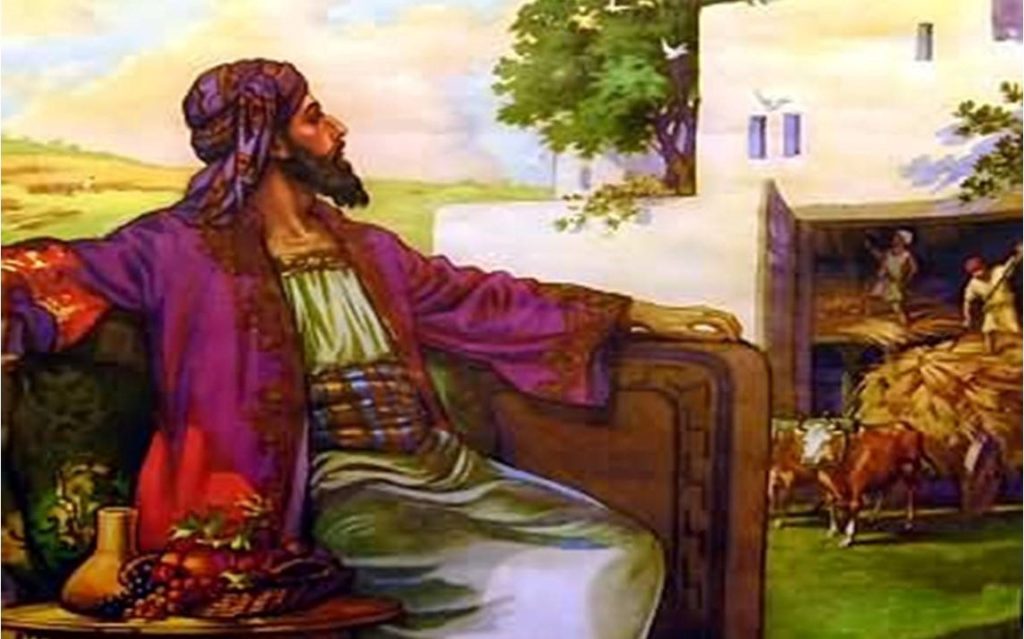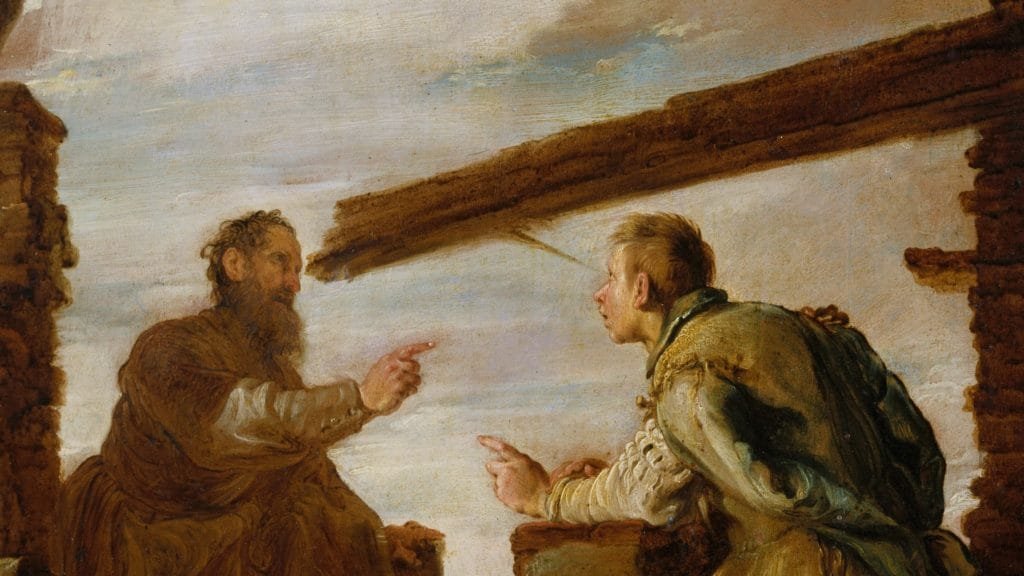DAILY GOSPEL COMMENTARY: THE BEATITUDES AND THE WOES (Lk 6:20–26).

Gospel of Wednesday, 23rd week in Ordinary time
The Beatitudes and the woes
Raising his eyes toward his disciples Jesus said: “Blessed are you who are poor, for the Kingdom of God is yours. Blessed are you who are now hungry, for you will be satisfied. Blessed are you who are now weeping, for you will laugh. Blessed are you when people hate you, and when they exclude and insult you, and denounce your name as evil on account of the Son of Man.
Rejoice and leap for joy on that day! Behold, your reward will be great in heaven. For their ancestors treated the prophets in the same way.
But woe to you who are rich, for you have received your consolation. But woe to you who are filled now, for you will be hungry. Woe to you who laugh now, for you will grieve and weep. Woe to you when all speak well of you, for their ancestors treated the false prophets in this way.”
Gospel Commentary from the Navarre Bible, Commentary to the Gospel of St. Luke (with permission)
vv. 20-26 The eight Beatitudes which St Matthew gives (5:3.12) are summed up in four by St Luke, but with four opposite woes. We can say, with St Ambrose, that Matthew’s eight are included in Luke’s four (cf. Expositio Evangelii sec. Lucam, in loc.). In St Luke they are in some cases stated in a more incisive, more direct form than in the first Gospel, where they are given with more explanation: for example, the first beatitude says simply “Blessed are you poor”, whereas in Matthew we read, “Blessed are the poor in spirit”, which contains a brief explanation of the meaning of the virtue of poverty.
20 “The ordinary Christian has to reconcile two aspects of this life that can at first sight seem contradictory. There is on the one hand true poverty, which is obvious and tangible and made up of definite things. This poverty should be an expression of faith in God and a sign that the heart is not satisfied with created things and aspires to the Creator; that it wants to be filled with love of God so as to be able to give this same love to everyone. On the other hand, an ordinary Christian is and wants to be one more among his fellow men, sharing their way of life, their joys and happiness; working with them, loving the world and all the good things that exist in it; using all created things to solve the problems of human life and to establish a spiritual and material environment which will foster personal and social development…
“To my way of thinking the best examples of poverty are those mothers and fathers of large and poor families who spend their lives for their children and who with their effort and constancy — often without complaining of their needs — bring up their family, creating a cheerful home in which everyone learns to love, to serve and to work” (St. Josemaria, Conversations, 110f).
24-26 Our Lord here condemns four things: avarice and attachment to the things of the world; excessive care of the body, gluttony; empty-headed joy and the seeking of self-satisfaction in everything; flattery, and disordered desire for human glory:four very common vices which a Christian needs to be on guard against.
24 En the same kind of way as in v. 20, which refers to the poor in the sense of those who love poverty, seeking to please God better, so in this verse the ‘‘rich” are to he understood as those who strive to accumulate possessions heedless of whether or not they are doing so lawfully, and who seek their happiness in those possessions, as if they were their ultimate goal.
– But people who inherit wealth or acquire it through honest work can be really poor provided they are detached from these things and are led by that detachment to use them to help others, as God inspires them.
– We can find in Sacred Scripture a number of people to whom the beatitude of the poor can be applied although they possess considerable wealth — Abraham, Isaac, Moses, David, Job, for example.
– As early as St Augustine’s time there were people who failed to understand poverty and riches properly; they reasoned as follows: the Kingdom of heaven belongs to the poor, the Lazaruses of this world, the hungry; all the rich are had, like this rich man here. This sort of thinking led St Augustine to explain the deep meaning of wealth and poverty according to the spirit of the Gospel:

“listen, poor man, to my comments on your words. When you refer to yourself as Lazarus, that holy man covered with wounds, I am afraid your pride makes you describe yourself incorrectly. Do not despise rich men who are merciful, who are humble: or, to put it briefly, do not despise poor rich men. Oh, poor man!, be poor yourself; poor, that is, humble. . . . Listen to me, then. Be truly poor, be devout, be humble; if you glory in your ragged and ulcerous poverty, if you glory in likening yourself to that beggar lying outside the rich man’s house, then you are only noticing his poverty, and nothing else. What should I notice, you say? Read the Scriptures and you will understand what I mean. Lazarus was poor, but he to whose bosom he was brought was rich. ‘It came to pass, it is written, that the poor man died and he was brought by the angels to Abraham’s bosom.’ To where? To Abraham’s bosom or, let us say, to that mysterious place where Abraham was resting. Read and remember that Abraham was a very wealthy man when he was on earth: he had abundance of money, a large family, flocks, land; and yet that rich man was poor, because he was humble. ‘Abraham believed God and it was reckoned righteous.’ . . . He was faithful, he did good, he received the commandment to offer his son in sacrifice and he did not refuse to offer what he had received to Him from whom he had received it. He was approved in God’s sight and set before us as an example of faith” (Sermon14).

To sum up: poverty does not consist in something purely external, in having or not having material goods, but in something that goes far deeper, affecting a person’s heart and soul; it consists in having a humble attitude to God, in being devout, in having total faith.
If a Christian has these virtues and also has an abundance of material possessions, he should be detached from his wealth and act charitably towards others and thus be pleasing to God. On the other hand, if someone is not well-off he is not justified in God’s sight on that account, if he fails to strive to acquire those virtues in which true poverty consists.
VIDEO COMMENTARY
TOPIC: Are the Beatitudes your Be.-Attitudes in facing your life’s circumstances?
Stay updated: subscribe by email for free TO OUR NEW WEBSITE www.catholicsstrivingforholiness.org (PUT YOUR EMAIL IN THE SUBSCRIBE WIDGET).
We are also in www.fb.com/Catholicsstrivingforholiness. Kindly help more people in their Christian life by liking our page and inviting your family, friends and relatives to do so as well. Thanks in advance and God bless you and your loved ones! Fr. Rolly Arjonillo
